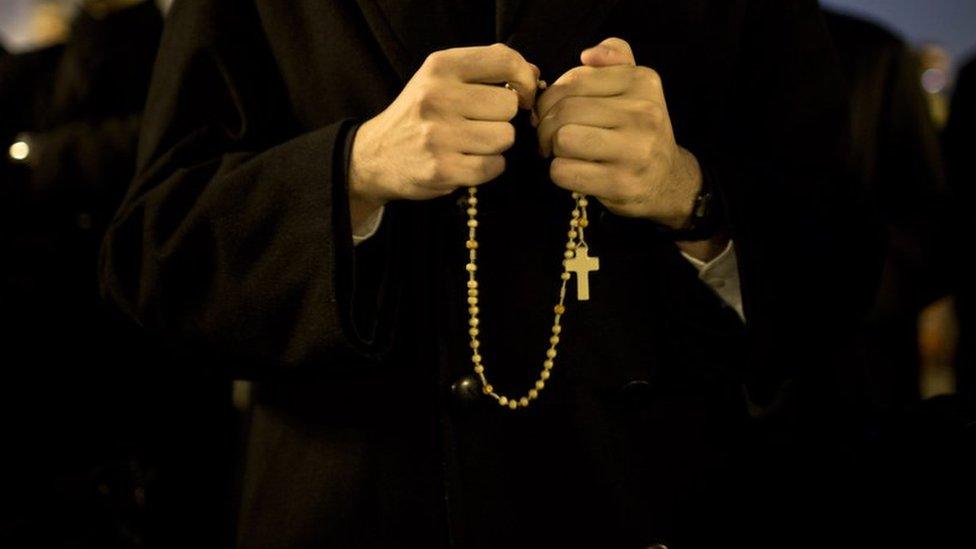Pope keeps silent on abuse claim letter at end of Irish visit
- Published
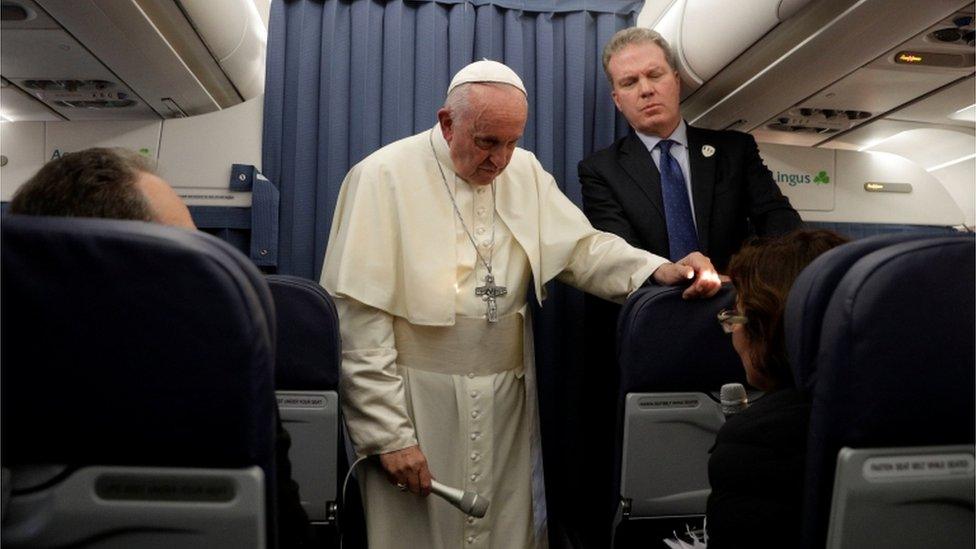
Pope Francis addressed journalists on his flight back from Dublin to Rome
Pope Francis has refused to respond to claims by a former Vatican diplomat who has called on him to resign.
Archbishop Carlo Maria Vigano also accused the Pope of covering up reports of sexual abuse by a US cardinal.
The pontiff was asked about the accusations by reporters on his flight back to Rome after this weekend's Papal visit to Ireland.
He said he would not say a single word in response to the 11-page letter from Archbishop Vigano.
"I will say sincerely that I must say this, to you," he said, when asked by a journalist about the letter, "and all of you who are interested: Read the document carefully and judge it for yourselves.
"I will not say one word on this. I think the statement speaks for itself."
The timing of the letter, released as the Pope addressed sexual abuse by priests during his visit to Ireland, has raised questions about whether Pope Francis is facing a coordinated attack from traditionalists within the Catholic hierarchy.
"You have sufficient journalistic capacity to draw conclusions," Pope Francis told the reporters on board his plane.
"When a little time has passed and you have the conclusions, perhaps I will talk," he added.
What does Archbishop Vigano allege?
He says the pontiff knew about allegations of sex abuse by a prominent US cardinal for five years before accepting his resignation last month.
Archbishop Vigano says he told Pope Francis in 2013 that Cardinal Theodore McCarrick had faced extensive accusations of sexually abusing lower-ranking seminarians and priests.
The Pope "knew from at least June 23 2013 that McCarrick was a serial predator"., wrote Archbishop Vigano, adding that "he knew that he was a corrupt man, he covered for him to the bitter end".

Protesters in Dublin expressed anger at the Pope
"Pope Francis must be the first to set a good example for cardinals and bishops who covered up McCarrick's abuses and resign along with all of them," the letter says.
However, Archbishop Vigano has not produced any written or other evidence to verify his alleged 2013 conversation with the Pope.
He served as the Vatican's envoy in Washington from 2011 until 2016.
He also says he wrote a memo to senior figures in the Vatican as early as 2006, warning that Theodore McCarrick was suspected of abusing adults at a seminary while he was a bishop in New Jersey between 1981 and 2001.
McCarrick, now 88, resigned in disgrace in July.

A public challenge to the Pope
By Martin Bashir, BBC Religion editor
The timing of Archbishop Vigano's letter has been described by a Vatican source as "suspicious" and may have been part of an orchestrated attack from those within senior levels of the Church who have opposed Pope Francis from the moment he was elected in 2013.
The Pope's informal leadership, baptising a baby on the street and even marrying a couple during a flight, has concerned some traditionalists and his document about the family - Amoris Laetitia - provoked four cardinals to release a series of queries that became known as "dubia".
Archbishop Vigano is known to be an ally of the so called dubia cardinals, who have publicly challenged Pope Francis to correct his teaching on family life - and have suggested that there may be occasions when a Pope should be challenged and disobeyed.
The Pope's decision not to offer any comment about Archbishop Vigano's document is in keeping with his desire to avoid public spats with senior clerics. But his silent treatment of Archbishop Vigano's letter, on the Papal plane, told its own story.

How did the Pope address sexual abuse during his visit to Ireland?
At a Mass on Sunday in Dublin's Phoenix Park, the culmination of his two-day visit to Ireland, Pope Francis begged forgiveness for the "abuses in Ireland, abuses of power, conscience and sexual abuses" perpetrated by Church leaders.
Earlier, he said no-one could fail to be moved by stories of those who "suffered abuse, were robbed of their innocence and left scarred by painful memories", and reiterated his wish to see justice served.
Allow X content?
This article contains content provided by X. We ask for your permission before anything is loaded, as they may be using cookies and other technologies. You may want to read X’s cookie policy, external and privacy policy, external before accepting. To view this content choose ‘accept and continue’.
Pope Francis used the penitential rite of the Mass to list a litany of different types of abuse and mistreatment inflicted on Irish people by Church figures, and the cover-ups of sex crimes.
On each occasion he asked for forgiveness, the congregation - estimated by the Vatican to number 300,000 - applauded.
What allegations has the Church in Ireland faced?
The Irish Catholic Church has been rocked by revelations of paedophile priests, sexual abuse in Catholic-run orphanages, and the exploitation of women in mother-and-baby homes.
During the first day of his trip, Pope Francis met eight survivors of sexual abuse, reportedly telling them he viewed clerical sex abuse as "filth".
The Pope must "get his head around" abuse victims' pain, says Father Patrick McCafferty
The Taoiseach (Prime Minister) Leo Varadkar delivered a strong warning to the Pope to take action against clergy involved in child abuse and in keeping it secret.
Meanwhile in Tuam, County Galway, about 1,000 people gathered for a silent vigil to remember the Tuam Babies.
The Tuam home was one of 10 institutions to which about 35,000 unmarried pregnant women are thought to have been sent.
Large crowds also attended a Stand4Truth event in Dublin to show solidarity with victims of clerical sex abuse.
How did the Pope respond to the Irish PM?
Returning from Dublin, Pope Francis was asked for his views on what Leo Varadkar, a gay man, had said about modern Ireland recognising that families came in "many forms", including those run by same-sex partners.
Ireland voted for constitutional change on same sex-marriage in 2015 and voted overwhelmingly to overturn its strict abortion law in May.
The Pope said that fathers who saw that a son or daughter had "homosexual tendencies" should not condemn but give them space and seek dialogue.
"There are many things to do with psychiatry, to see how things are," he said, although the age of the child was important.
"But I'll never say that silence is a remedy. To ignore a son or daughter with homosexual tendencies is a lack of paternity and maternity."
- Published26 August 2018
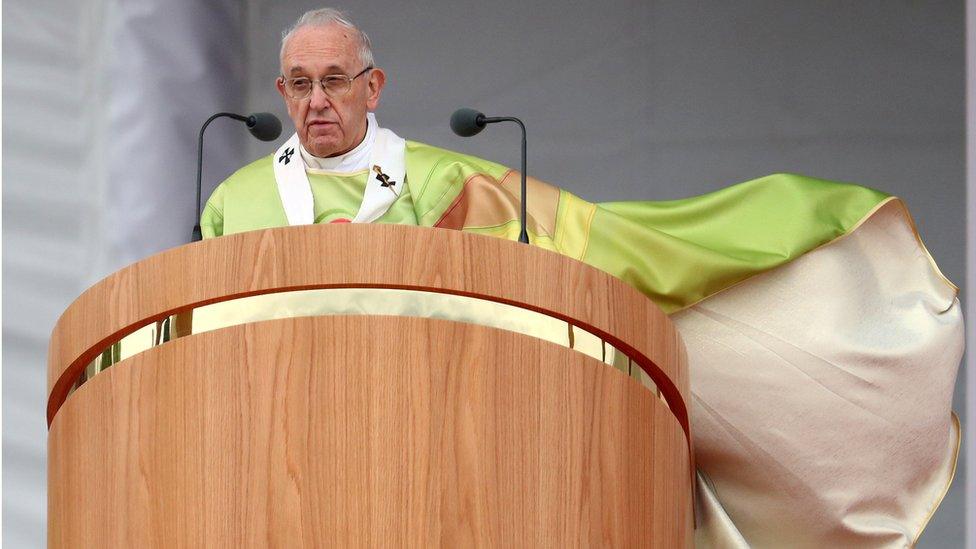
- Published26 August 2018
- Published20 August 2018
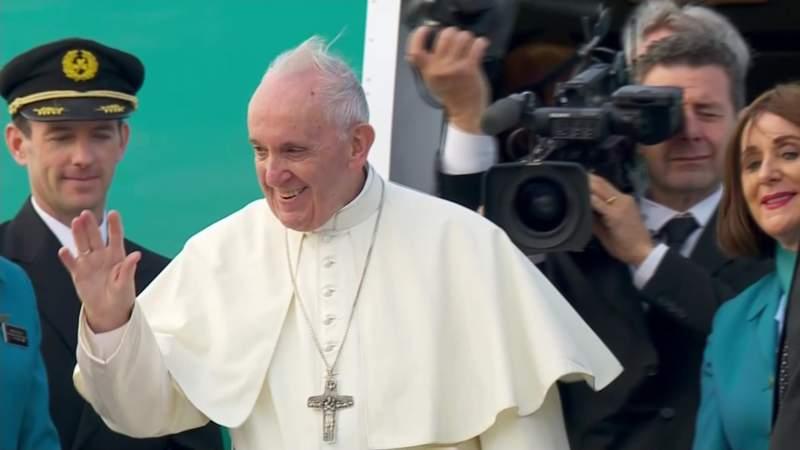
- Published26 August 2018
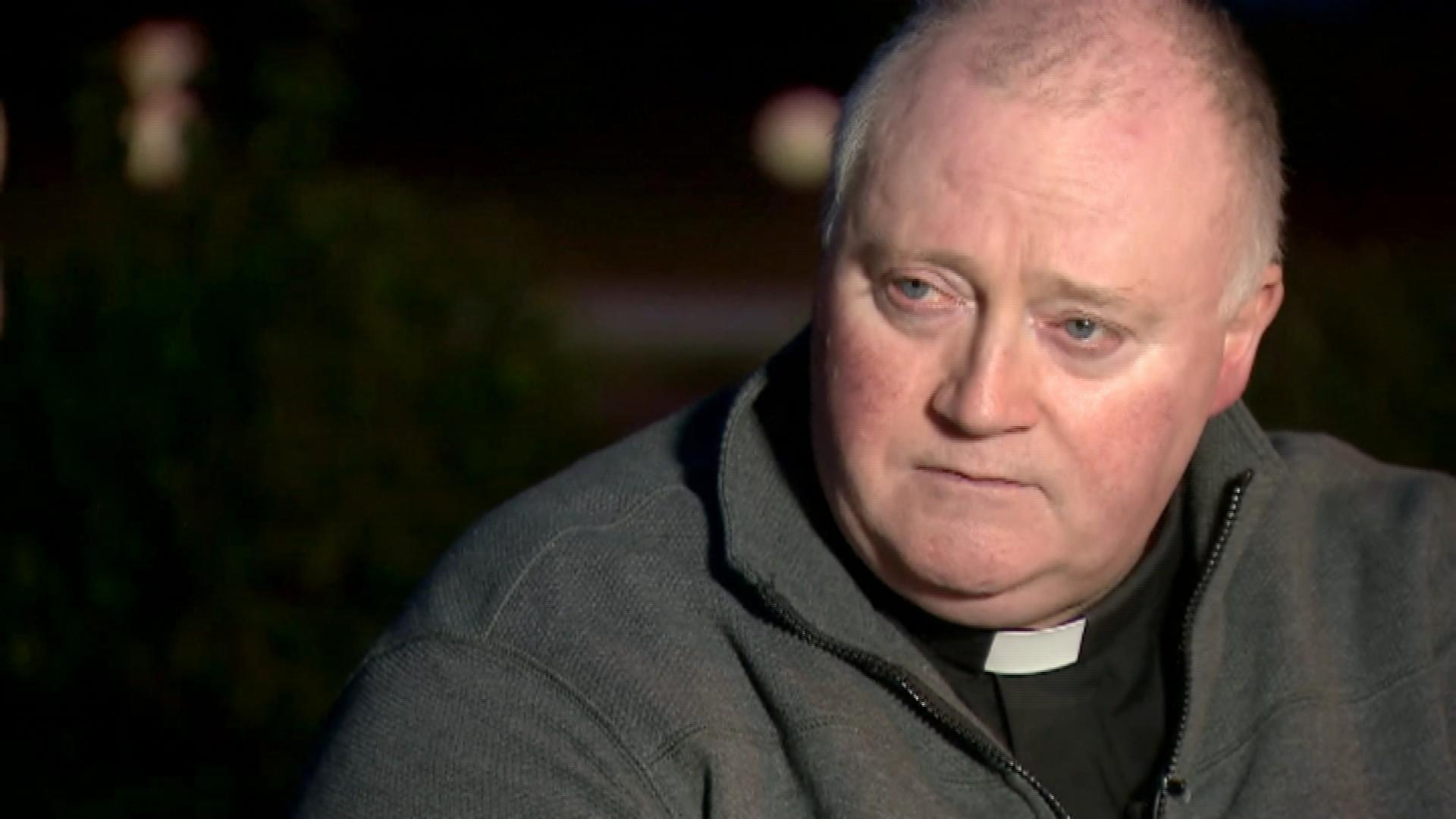
- Published5 October 2021
